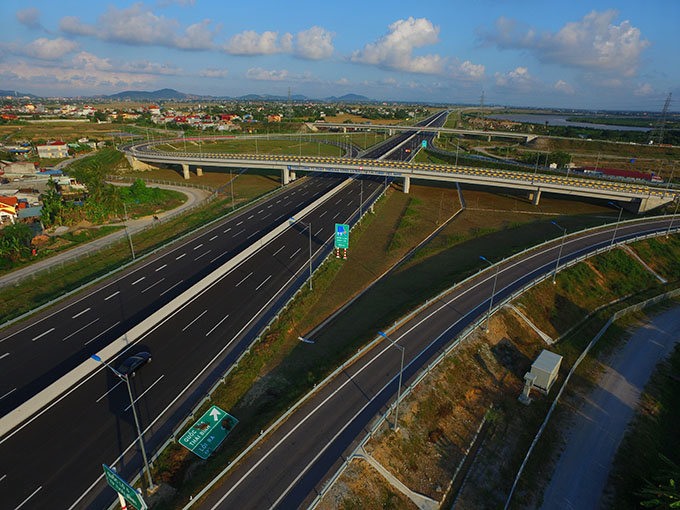 Economy
Economy

A need to fund infrastructure projects vital to expanding Việt Nam’s economy and boosting connectivity is pushing its government to turn to the private sector for support.
 |
| A section of the Hà Nội-Hải Phòng highway. Việt Nam has made a strong commitment to infrastructure spending in recent years. — Photo tuoitre.vn |
HÀ NỘI — A need to fund infrastructure projects vital to expanding Việt Nam’s economy and boosting connectivity is pushing its Government to turn to the private sector for support.
Việt Nam has made a strong commitment to infrastructure spending in recent years, with investments averaging 5.7 per cent of GDP, according to the Asian Development Bank (ADB) – a figure second only to China’s in the region and triple the outlays of Malaysia, Thailand, Indonesia and the Philippines.
This commitment is set to continue in the medium term: according to the Ministry of Planning and Investment, Việt Nam needs some $480 billion to fund urgent infrastructure investments by 2020, with more projects in the pipeline in the following decade.
Among the key projects is construction of a planned $13 billion, 10-lane road spanning 1,800km between Hà Nội in the north and HCM City in the south. It will be the largest road project to date and boost connectivity substantially along the country’s north-south spine.
Other key projects include building 11 power stations with a combined generation capacity of 13.2GW, intercity and intracity rail networks, and at least 1,380km of additional highways.
While investment levels are high as Việt Nam seeks to reinforce its national infrastructure backbone, the share of development funding coming from the private sector is low.
According to ADB estimates, private investment in Việt Nam’s infrastructure could be less than 10 per cent of the national total, compared to as much as 30 per cent in India.
Reasons for this low participation include the long-term nature of such projects, where returns on investments take far longer than those in other sectors, such as property.
The need for more private funding of infrastructure should become more pressing in the coming years, with the ADB estimating that the State budget will be able to fund just one-third of the $480 billion in planned spending by the end of the decade.
To better tap private funding, Việt Nam needs to deepen its capital market structure, according to a report published last month by consultancy McKinsey.
The report said Việt Nam – along with several other Asian countries – should do more to tap private savings to help finance infrastructure expansion and ease reliance on the public sector.
Of the 12 countries covered in the report, Việt Nam ranked last for both development maturity and the size of the local market as a share of GDP: capital markets in Japan for example were valued at some 400 per cent of GDP to Việt Nam’s 50 per cent. Such gaps put Việt Nam at a disadvantage when seeking to mobilise private sector finance for infrastructure investments, the study said.
Increased liquidity in the sovereign bond market would allow the State to better harness private sector finance, it said, but would require a shift to larger sales of benchmark bonds, rather than the current mix of different outstanding bonds that are only rarely traded.
One proposed avenue to increased infrastructure funding is pension funds. Though of only limited scale at present, in time these could be grown into a source of development finance, as in many other countries, according to Tyler Cheung, director of the institutional client division at ACB Securities, a full service brokerage firm.
“Through tax incentives to invest in pension schemes, a new pool of funding could be developed in the capital market, while also easing pressure on the banking sector,” Cheung told OBG. “Not only will this help shift a burden from the State to individuals, it can also fund long-term projects such as infrastructure and logistics.”
High dependence on banks for funding makes broadening the capital markets base increasingly important, according to Phạm Hồng Hải, CEO of HSBC Việt Nam.
“Developing the capital market is critical for Việt Nam,” he told OBG. “Banks are supporting 70-80 per cent of capital requirements today. This is too much, and they won’t be able to handle this in the long run.”
Scaling back Government reliance on local banks to raise funds for infrastructure would also free up liquidity for lending to the private sector, which at times struggles to obtain credit.
A deeper capital markets pool would both increase liquidity in the economy and allow some of the funding to flow into much-needed infrastructure investment. — Oxford Business Group




